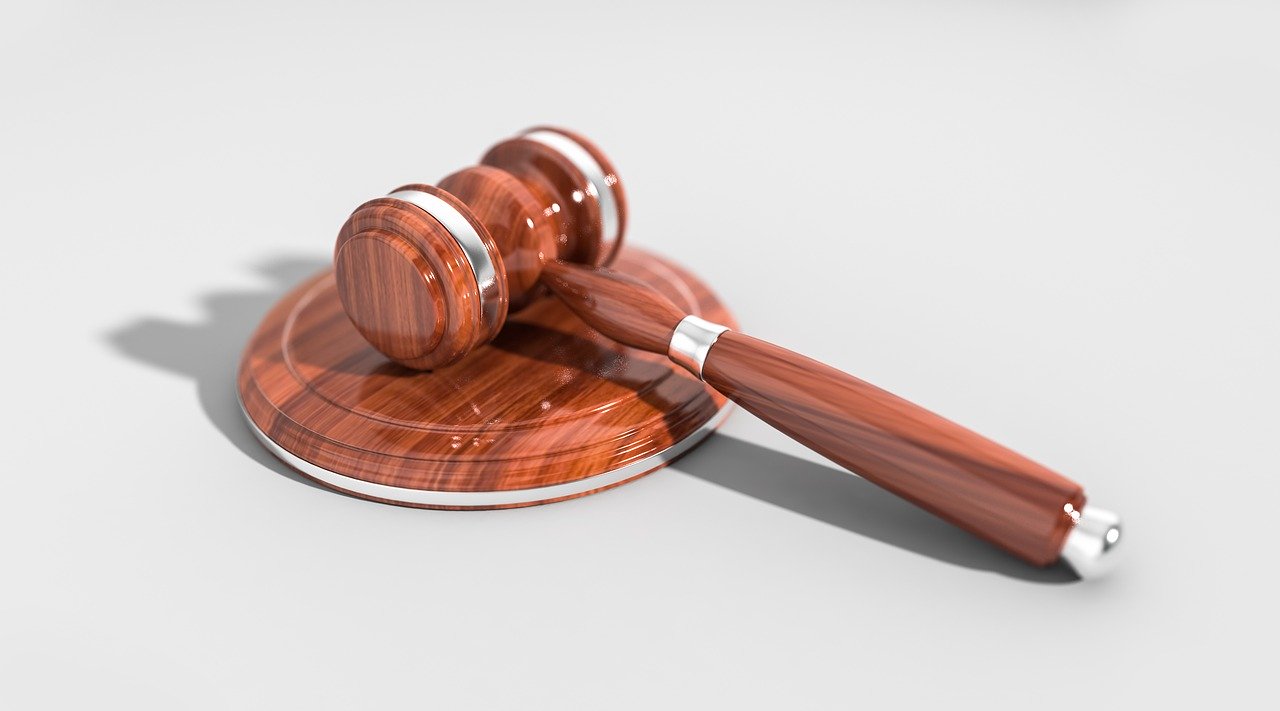Lifestyle
How to Pursue a Wrongful Death Claim

If someone you love has died because of someone else’s actions or negligence, you may be entitled to compensation via a wrongful death claim. Unfortunately, many people don’t really understand what a wrongful death claim is and aren’t especially motivated to pursue one.
How do you pursue a wrongful death claim and is it worth the time and effort?
Your First Step: Contacting a Lawyer
The first step of the process should always be contacting a wrongful death lawyer. Your lawyer is going to be your personal representative, representing your best interests, helping you understand the law, and advising you on the best course of action for your wrongful death suit. Most wrongful death lawyers are willing to offer an initial, free consultation, so there’s no real risk or downside to contacting one to determine if you have a reasonable wrongful death claim on your hands.
Upon first contact, your lawyer may inform you that this wrongful death claim isn’t worth pursuing, for one reason or another. If your claim is worth pursuing, however, they’ll help you understand the first steps of the process and provide you with instructions for how to conduct yourself from here.
What Is a Wrongful Death Claim?
In case you aren’t familiar, a wrongful death claim is a civil claim filed against an individual or an organization that was responsible for a person’s wrongful death. Wrongful death can occur in many situations and for many reasons, but it’s usually associated with an intentionally harmful action, malpractice, or negligence.
Wrongful death claims are often (but not only) filed in the events of wrongful death on the job, car accidents, medical malpractice, and product liability issues. If a person died because of someone else’s actions or lack of actions, it could hypothetically qualify as a wrongful death.
When filing a wrongful death claim, plaintiffs seek compensation from defendants. Compensation can be awarded for:
- Medical bills. If there were significant medical bills incurred as a result of this action or accident, the defendant may be responsible for reimbursing you for them. Any medical expenses associated with this particular event may be included.
- Funeral expenses. The defendant may also be responsible for compensating you for funeral expenses. The amount awarded may vary depending on several variables.
- Mental pain and suffering. Losing a loved one is horrific, and typically causes significant pain and suffering. While it’s hard to put a price tag on pain and suffering, most guilty defendants in wrongful death claims end up paying at least some money in compensation for this.
- Loss of support and services. Compensation is also frequently awarded for loss of support and services. If you relied on this person for income, important responsibilities, or just help around the house, it needs to be acknowledged.
- Loss of future earnings. Loss of future earnings is what it sounds like; it’s compensation for the earnings this person would have had were it not for the wrongful death.
Who Can Sue?
In most cases, spouses, children, and other close relatives can sue for wrongful death. However, there are some jurisdictions and some specific scenarios in which other people can sue for wrongful death as well. Talk to your lawyer to find out who can file a claim in your area.
Important Considerations
There are some important considerations you’ll need to bear in mind before beginning to pursue a wrongful death claim:
- The statute of limitations. Understand that there’s a statute of limitations for wrongful death claims. The exact length of time varies from location to location, but you’ll usually only have a year to a few years before you’re no longer able to file a claim.
- Evidence. If you want to prove that the defendant is responsible for the wrongful death, you’ll need evidence to do it. Your lawyer can guide you with more specific detail here, but you should do everything you can to gather and preserve evidence that shows what happened.
- Proving negligence. Proving negligence can be difficult in a court of law, as you’ll have to prove four separate things: duty of care, a breach of duty, causation, and damages.
- Timelines. Wrongful death claims can sometimes take a long time to pursue. It may also take some time and energy on your part. Make sure you’re prepared for this before you begin the journey.
- Fees. Many wrongful death attorneys will not charge you unless you win compensation. Either way, make sure you understand the fees for which you are responsible before you enlist these professional services.
Tragedies can never be undone, but it is possible to seek justice and compensation with the help of a skilled attorney. If you’ve recently lost a loved one in an event that was attributable to someone else, it’s a good idea to talk to a lawyer as soon as possible.
Lifestyle
When Seasons Shift: Dr. Leeshe Grimes on Grief, Loneliness, and Finding Light Again

Some emotional storms arrive without warning. A sudden change in weather, a holiday approaching, or even a bright sunny day can stir feelings that don’t match the world outside. For many people, the hardest seasons are not defined by temperature; they are defined by what’s happening inside, where grief and loneliness often move quietly.
This is the emotional terrain where Dr. Leeshe Grimes has spent her career doing some of her most meaningful work. As a psychotherapist, registered play therapist, retired U.S. Army combat veteran, and founder of Elevated Minds in the DMV area, she understands how deeply seasonal shifts and unresolved grief can affect people. Her upcoming books explore this very space, guiding readers through the emotional weight that can appear during different times of the year.
What sets Dr. Grimes apart is her ability to see clearly what many people overlook. Seasonal depression, for example, is usually tied to winter months. But she often sees it appear during warm, bright seasons, the times when the world seems happiest. For someone already grieving or feeling disconnected, watching others travel, celebrate, or gather can create its own kind of heaviness. Sunshine doesn’t always lift the mood; sometimes it highlights what feels missing.
The same misunderstanding surrounds grief. Society often treats it as a short-term experience with predictable phases and a clean ending. But in her practice, Dr. Grimes sees how grief keeps evolving. It doesn’t disappear on a timeline. It weaves itself into routines, memories, and milestones. People learn to carry it differently, but they rarely leave it behind completely. And that’s not failure, it’s human.
Her approach to mental health centers on truth rather than pressure. She encourages clients to acknowledge the emotions they try to hide: sadness that lingers longer than expected, moments of joy that feel out of place, and the waves of loneliness that return even when life seems stable. Instead of pushing for quick recovery, she focuses on helping people understand how emotions shift and how to care for themselves through those changes.
Much of her insight comes from her military years, where she witnessed the emotional toll of loss, transition, and constant survival. She saw how people continued functioning while carrying pain that had nowhere to go. That experience shaped her belief that healing requires space, space to feel, to speak, and to move through emotions without judgment.
In her clinical work today at Elevated Minds, she encourages people to build small, steady habits that anchor them during difficult seasons. Journaling helps them recognize patterns and name what feels heavy. Community support breaks the cycle of isolation. Therapy creates a place where emotions don’t have to be minimized or explained away. And intentional routines, daily sunlight, mindful breaks, and calm evenings help rebuild emotional balance.
Her upcoming books expand on these ideas, offering practical guidance for navigating both grief and seasonal depression. She focuses on helping readers understand that healing is not about escaping pain. It’s about learning how to live with it in a healthier way, honoring memories, acknowledging loneliness, and still allowing room for moments of light.
What makes Dr. Leeshe Grimes a compelling voice in mental health is her ability to bring language to experiences that many struggle to explain. She reminds people that emotional seasons don’t always match the weather and that there is no single path through grief. But within those shifts, she believes there is always a way forward.
The seasons will continue to change. And with the right tools, compassion, and support, people can change with them, finding steadiness, softness, and light again, one step at a time.
-

 Tech5 years ago
Tech5 years agoEffuel Reviews (2021) – Effuel ECO OBD2 Saves Fuel, and Reduce Gas Cost? Effuel Customer Reviews
-

 Tech6 years ago
Tech6 years agoBosch Power Tools India Launches ‘Cordless Matlab Bosch’ Campaign to Demonstrate the Power of Cordless
-

 Lifestyle7 years ago
Lifestyle7 years agoCatholic Cases App brings Church’s Moral Teachings to Androids and iPhones
-

 Lifestyle5 years ago
Lifestyle5 years agoEast Side Hype x Billionaire Boys Club. Hottest New Streetwear Releases in Utah.
-

 Tech7 years ago
Tech7 years agoCloud Buyers & Investors to Profit in the Future
-

 Lifestyle5 years ago
Lifestyle5 years agoThe Midas of Cosmetic Dermatology: Dr. Simon Ourian
-

 Health7 years ago
Health7 years agoCBDistillery Review: Is it a scam?
-

 Entertainment7 years ago
Entertainment7 years agoAvengers Endgame now Available on 123Movies for Download & Streaming for Free
